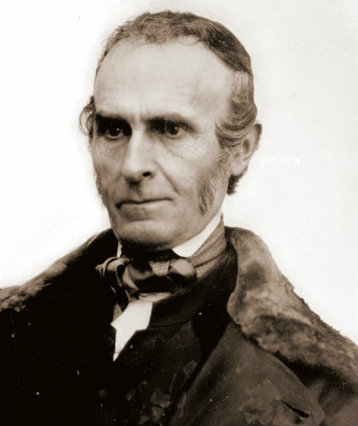“All hail!” the monks at Christmas sang.
The merry monks who kept with cheer
The gladdest day of all their year. But still, apart, unmoved thereat,
A pious elder brother sat
Silent, in his accustomed place,
With God’s sweet peace upon his face. “Why sitt’st thou thus?’ his brethren cried,
“It is the blessed Christmas-tide;
The Christmas lights are all aglow,
The sacred lilies bud and blow. “Above our heads the joy-bells ring;
Without the happy children sing,
And all God’s creatures hail the morn
On which the holy Christ was born! “Rejoice with us; no more rebuke
our gladness with thy quiet look.”
The gray monk answered: “Keep, I pray,
Even as ye list, the Lord’s birthday.
“Let heathen yule-fires flicker red
Where thronged refectory[*] feasts are spread;
With mystery-play and masque and mime,
And wait-songs speed the holy time! “The blindest faith may haply save;
The Lord accepts the things we have;
And reverence, howsoe’er it strays,
May find at last the shining ways. “They needs must grope who cannot see;
The blade before the ear must be;
As ye are feeling I have felt,
And where ye dwell I too have dwelt. “But now, beyond the things of sense;
Beyond occasions and events,
I know, through God’s exceeding grace,
Release from form and time and place. “I listen, from no mortal tongue,
To hear the song the angels sung;
And wait within myself to know
The Christmas lilies bud and blow. “The outward symbols disappear
From him whose inward sight is clear;
And small must be the choice of days
To him who fills them all with praise! “Keep, while you need it, brothers mine,
With honest zeal your Christmas sign;
But judge not him who every morn
Feels in his heart the Lord Christ born!” *A room used for communal meals, especially in an educational or religious institution.
Return to The Meaning of Christmas Day



Post a Comment